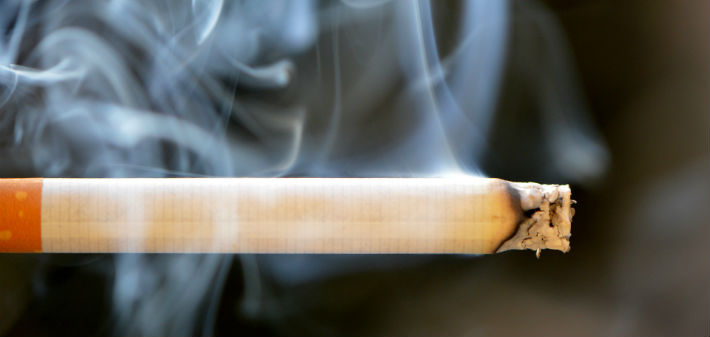If you have missing or damaged teeth, dental implants are one of the best ways to restore your dental health. If you smoke, however, you can risk the success of your treatment.
When exploring your options for restorative dental care, dental implants should be at the top of your list. They can be used to replace damaged or missing teeth, stabilize your dentures, and improve your overall outlook on your teeth and health. But when you invest in this type of procedure, it is also vitally important to make sure you avoid the habits that caused the damage in the first place. To keep your smiles healthy and bright, you must exercise caution and avoid smoking before it affects the success of your new dental implants.
Smoking’s Effect on Your Oral Health
Cigarette smoke has thousands of toxic and carcinogenic (cancer-causing) compounds that negatively impact your health. Every time you smoke, you inhale many of these toxic particles that then go on to wreak havoc throughout the body. Most of this is well-known; lung cancer, cardiovascular disease, and arterial disease are all commonly associated with smoking. What many don’t realize is how smoking affects your oral health, impacting your gums, tongue, natural teeth, and dental implants.
The Dental Implant Procedure
Arkansas Family Dental promises highly individualized care for each and every patient, but there is a general process for the typical dental implant procedure.
First, any pre-existing damaged tooth will be removed. In some cases, there isn’t a tooth to begin with.
The jawbone is prepped for surgery with a process that sometimes involves bone grafting. The oral surgeon will than place a metal post implant into the jawbone.
After a healing period which may last several months, an abutment and crown will be attached to the metal post. This healing period, however, can be compromised if you are smoking before, during, and after your recovery.
Smoking and Dental Implants
Ideally, you should stop smoking before dental implants are installed in the mouth. Doing so would wholly eliminate the prolonged, sustained damage done to the implant by the toxins and carcinogens. If not possible, then your dentist will ask you to cease or reduce smoking during the healing process following the implant procedure. Doing so ultimately increases the likelihood of dental implant success.
According to a University of Minnesota study, the failure rate of dental implants doubles for smokers when compared to non-smokers. For those who didn’t experience total implant failure, complications of both the major and minor grade occurred 15% more often for those who smoked.
Smoking facilitates bone loss, tissue loss, tooth loss, gum disease, and more. These ultimately weaken the foundation of the entire surgery. Additionally, smoking can reduce blood flow and inhibit the overall healing process.
Fortunately, the staff at Arkansas Family Dental has nothing more than our patients’ health and well-being in mind. Failures and complications are still relatively rare, and your dentist can work individually with you to discuss the risks entailed with the surgery. To learn more about this procedure, call us at 501.683.8886 to schedule an appointment and discuss your options for dental implants in Little Rock.

